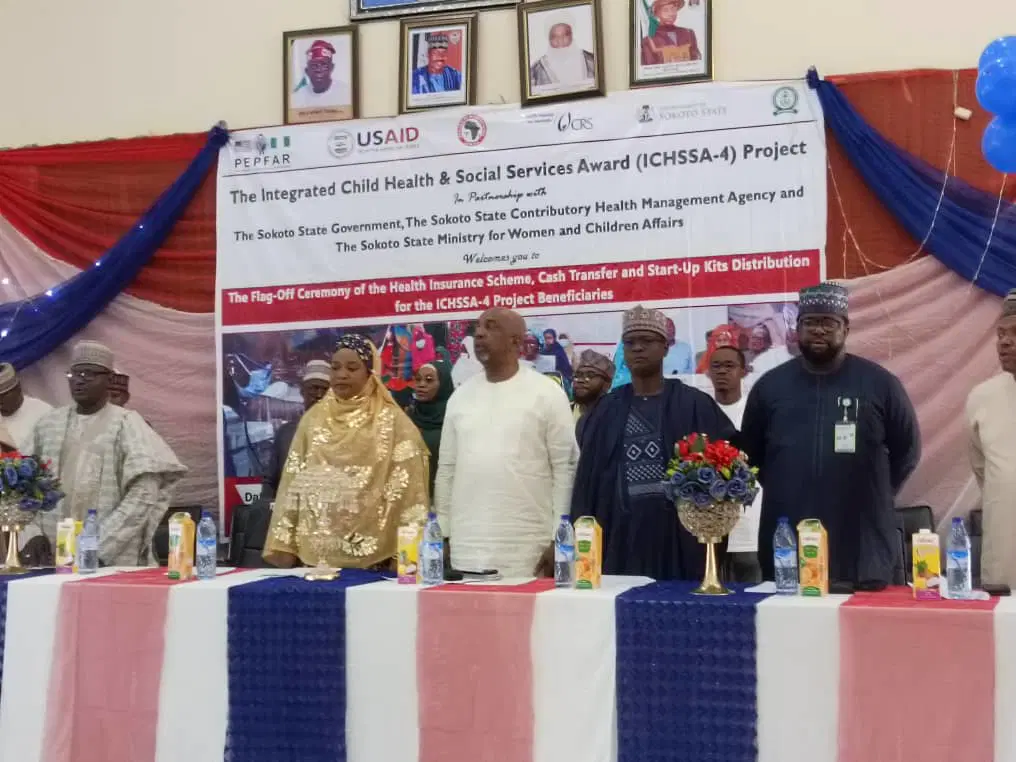The USAID-funded Integrated Child Health and Social Services Award (ICHSSA-4) project, in collaboration with the Sokoto State Government and other partners, launched significant interventions on Thursday to support vulnerable households in the state. These interventions include health insurance premium payments, cash transfers, and the distribution of start-up kits aimed at empowering Orphans and Vulnerable Children (OVC) and their families.
KEY INTERVENTIONS
- Health Insurance Premium Payments: Over NGN 14 million was allocated to cover the health insurance premiums for 1,428 beneficiaries.
- Cash Transfers: NGN 20,000 was disbursed to each of the 832 beneficiaries to help address immediate financial challenges.
- Start-up Kits Distribution: Vocational training was provided to 353 participants, who also received start-up kits to promote economic self-reliance.
The total cost of these interventions amounts to NGN 92,507,234.
PROJECT BACKGROUND
The ICHSSA-4 project, spanning from 2019 to 2024, is implemented by Pro-Health International in partnership with Catholic Relief Services. It seeks to mitigate the impact of HIV and other vulnerabilities in Sokoto and five other states: Adamawa, Taraba, Bauchi, Kebbi, and Zamfara. By offering integrated services and economic opportunities, the project aims to uplift the quality of life for vulnerable families.
LEADERSHIP AND OBJECTIVES
Dr. Joseph Inyang, Chief of Party for ICHSSA-4, emphasized the project’s commitment to working with state governments and local partners to deliver high-quality services. He highlighted the holistic nature of the initiative, which aims to foster long-term financial independence for vulnerable households by combining health insurance, cash transfers, and vocational training.
OFFICIAL LAUNCH EVENT
The launch event featured speeches, testimonials from beneficiaries of the vocational training program, and the distribution of health insurance cards and start-up kits. Dignitaries in attendance included the First Lady of Sokoto State, representatives from the Ministry of Women Affairs and Social Development, the Commissioner of Health, and various officials from government ministries and USAID.
These initiatives underscore the commitment to supporting vulnerable populations and empowering them to lead healthier, more secure lives.

